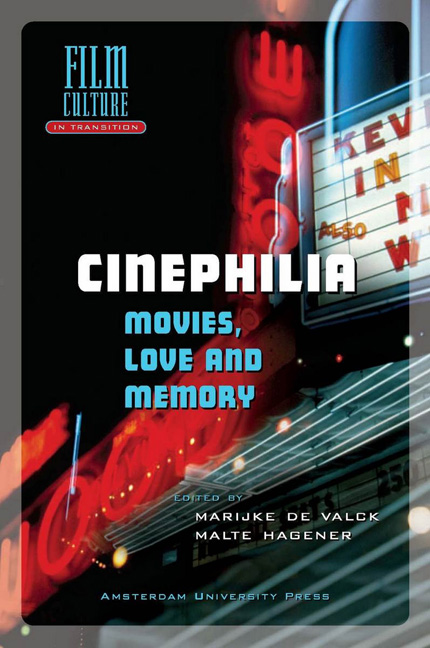Book contents
The Future of Anachronism: Todd Haynes and the Magnificent Andersons
Published online by Cambridge University Press: 25 January 2021
Summary
Speaking nostalgically, it is our grandfathers and grandmothers in general that we regret, not just their aesthetic response and opportunities to enjoy a perished art of the theater, but also their clothes, their relative moral simplicity, and above all the dignity, along with charming quaintness, which their traditional images can inspire in our feelings.
Parker Tyler, “On the Cult of Displaced Laughter”Parker Tyler's early treatise on the retrospective pleasures of cinematic artifacts, despite its having been written close to 46 years ago, reflects some of the “retro” stylistic tendencies in the recent work of American independent filmmakers, Todd Haynes’ FAR FROM HEAVEN (USA: 2002), Paul Thomas Anderson's BOOGIE NIGHTS (USA: 1997) and Wes Anderson's THE ROYAL TENENBAUMS (USA: 2001). For these directors, the “anachronistic” become, subjected to different aesthetic and narrative strategies, in which reference to “outdated” historical periods and objects invites spectators to engage affectively, though not necessarily uncritically, with history. The work of these American art-house auteurs has been spoken of both in terms of a “new sincerity” within vernacular criticism, but also in terms of irony, parody, and pastiche. Jeffrey Sconce, discussing the etiology of the “smart film” of the 1990s, suggests that these filmmakers, through their static tableaus and deadpan presentation, “render the uncomfortable and unspeakable through acute blankness.” Although seemingly redolent with such examples of blankness and ironic distance, it will be argued here that the films and the way in which they position the viewer, are actually invested in imagining an audience from the past, in a desire to reinstate a more earnest mode of film reception. Employing a film historical imaginary, these directors’ aesthetics capitalize on the visibility of anachronism as a means of highlighting the pathos of historical difference. The poignancy of the irrecoverable gap between past and present – between the 1950s, the 1970 and today, and between childhood and adulthood – becomes the subject of these films.
Negotiating cinephile attachments through a re-working of Hollywood's codes of representation, the films under discussion – FAR FROM HEAVEN, BOOGIE NIGHTS, and THE ROYAL TENENBAUMS – point to a particular historical, historiographic, and “retro” sensibility that diverges from the concerns of historical authenticity or veracity ascribed to the traditional “period film.”
- Type
- Chapter
- Information
- CinephiliaMovies, Love and Memory, pp. 153 - 168Publisher: Amsterdam University PressPrint publication year: 2005
- 2
- Cited by

